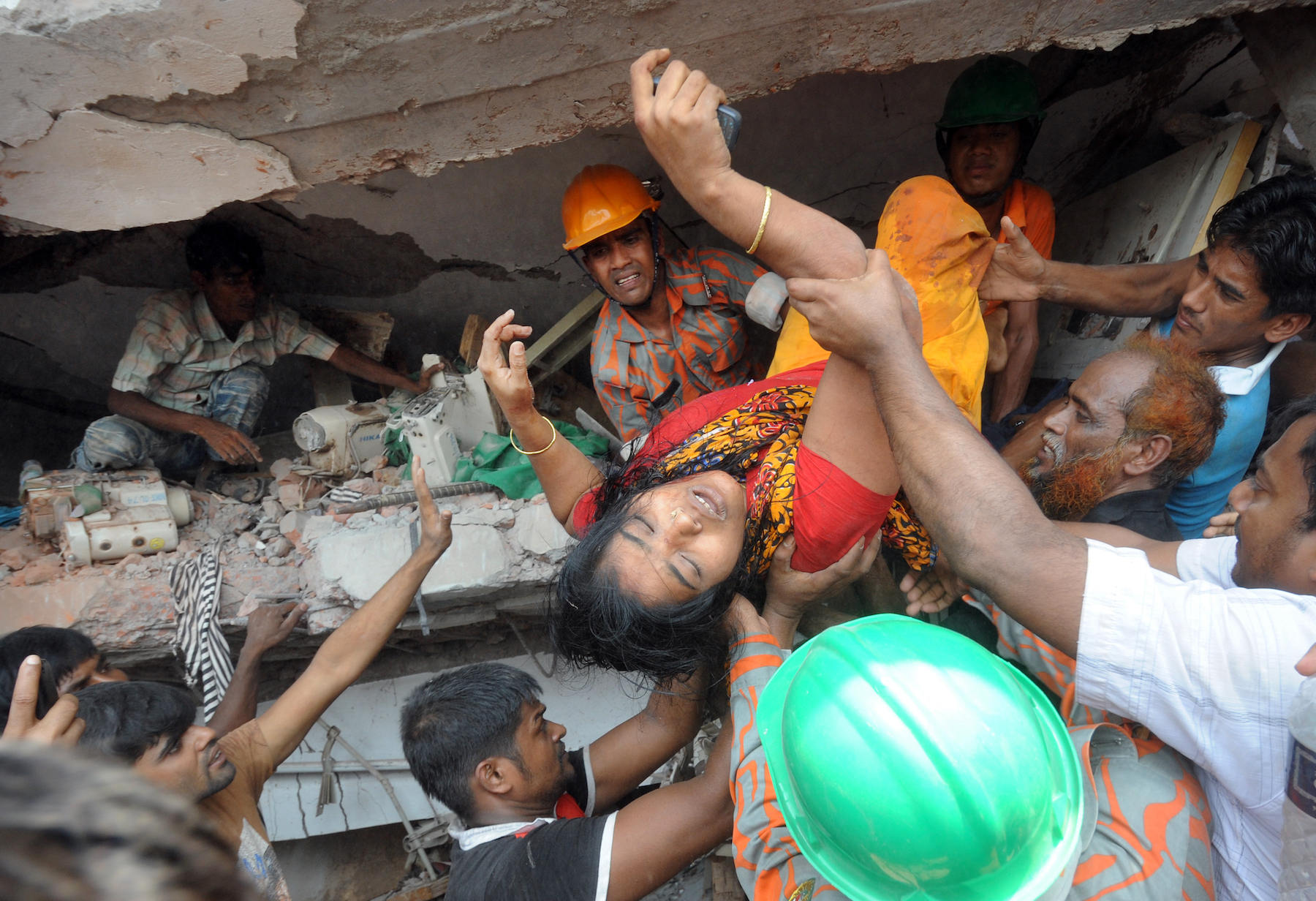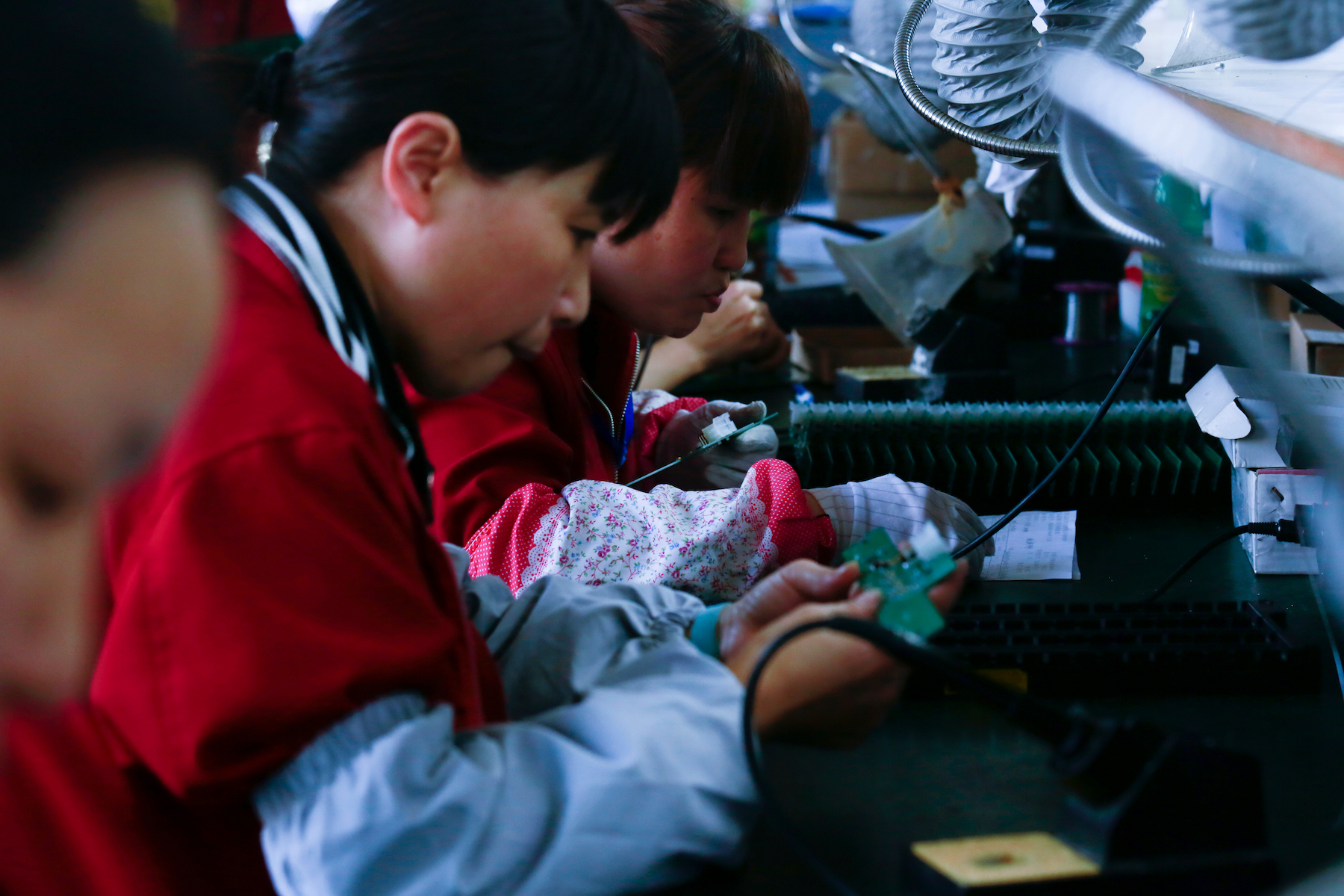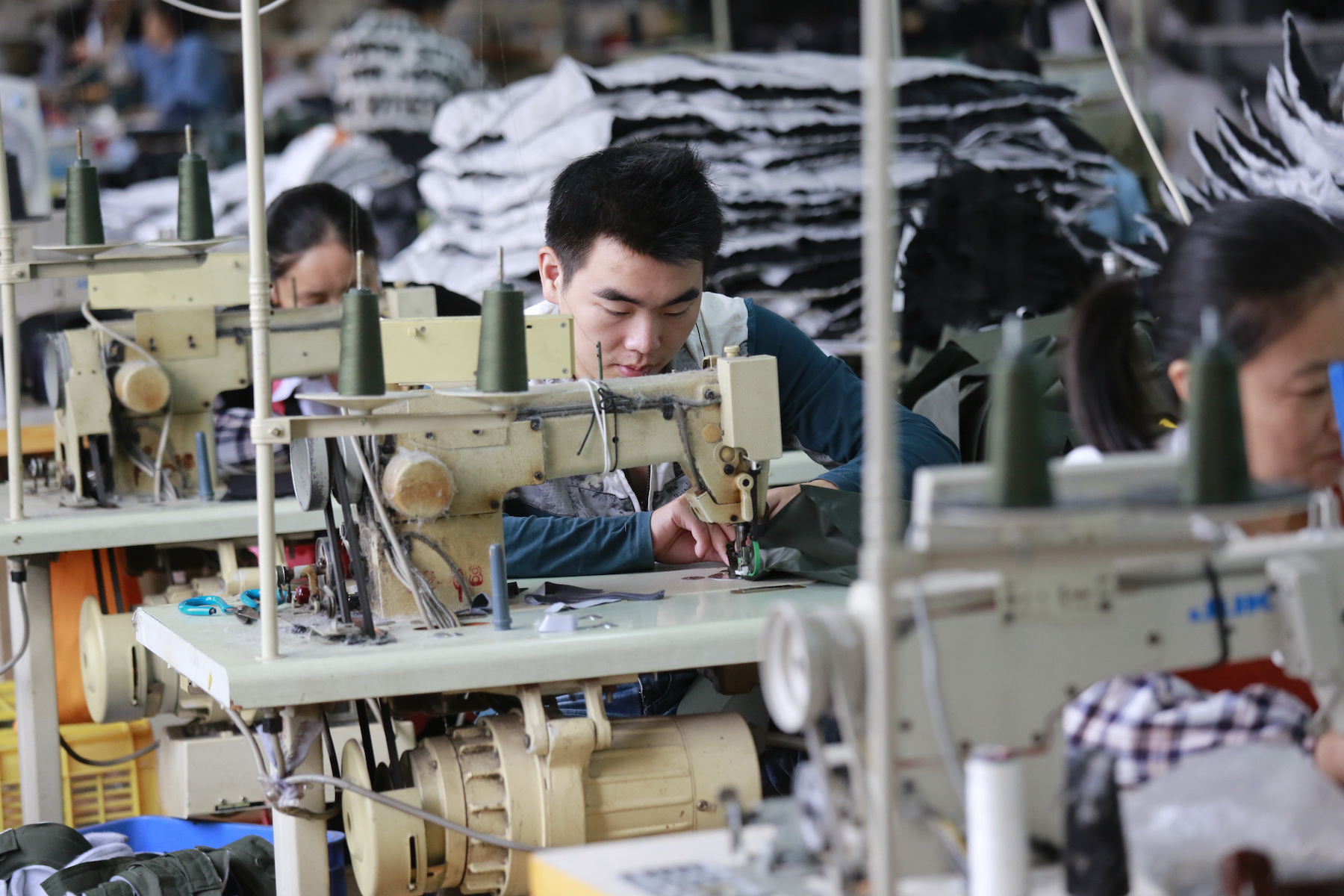Ten years ago at the Rana Plaza garment factory in Dhaka, Bangladesh, more than a thousand garment workers producing for global fashion brands like Benetton, Walmart and Primark lost their lives when the eight-storey building collapsed. On the morning of 24 April 2013, a total of 3,122 Bangladeshi workers reported to work, but 1,134 - more than one-third - perished in the collapse. About 2,000 surviving workers were injured. The day before the collapse, structural cracks had already been detected, but factory owners ignored warnings and put profits ahead of the safety of workers.

Photograph: Sk Hasan Ali / Shutterstock.com
Corporate social responsibility call-outs have not led to changed practices
The death and destruction from Rana Plaza’s collapse shook the entire world. International brands’ own corporate social responsibility (CSR) commitments were questioned at the most fundamental level, as human lives were brutally lost in the global supply chain’s race to the bottom for maximising profits at any cost. The incident led to some agreements that brands would improve structural standards at supplier factories and increased consumer awareness about the human costs of goods, but have conditions for workers materially changed?
International brands’ CSR commitments have had, at best, mixed results in monitoring safety and labour compliance at the workplace level. In fact, the pattern over the last decade shows that it takes unspeakable tragedy and blatant violations for any public attention on workers’ rights, and this spotlight is only fleeting. The result is typically an incident-driven temporary solution, rather than systemic and long-lasting improvements that include worker voices at the root of the processes.

Photograph: humphery / Shutterstock.com
Still, labour representatives from the Global South - and their civil society allies in the home countries and main markets of the brands - have continued to try to hold brands accountable for their unfulfilled promises. Public campaigns, independent investigations, and amplifying the voices of workers facing rights violations have been important mechanisms.
This kind of campaign pressure has led to signed agreements and millions of dollars paid in compensation, yet workplace accidents, non-payment of wages, attacks on unionised workers and a long list of CSR offences continue to happen, and apologies are no longer enough. Ten years after Rana Plaza, a new mechanism is needed to link workers, solidarity efforts, and brand CSR to prevent violations in the first place.
Does new due diligence legislation have potential to raise labour rights standards for workers?
Fast forward to 2022, on 23 February, when the European Commission adopted a proposal for a Directive on Corporate Sustainability Due Diligence (CSDDD) which “will ensure that businesses address adverse impacts of their actions, including in their value chains inside and outside Europe… to foster sustainable and responsible corporate behaviour and to anchor human rights and environmental considerations in companies’ operations.”
The CSDDD, the most comprehensive piece of legislation on global supply chains, may be approved in 2024, and EU countries would have two years to transpose the directive into their own national laws. Simultaneously to the CSDDD, European countries have been putting forward their own domestic supply chain due diligence legal frameworks, such as France’s Duty of Vigilance Law of 2017, Norway’s Transparency Act of 2022, and Germany’s Supply Chain Act of 2023. These pieces of legislation are the result of civil society coming together in solidarity with workers outside their jurisdictions in an effort to put an end to enduring imbalances in global supply chains.
International brands are the “hidden employers” in today’s globalised economy that ultimately dictate the working conditions at factories in production countries. Binding laws are new, useful tools for Global South workers and their unions to leverage on international brands, who control labour conditions through purchase pricing systems. Brands’ top-down voluntary CSR commitments have failed to materialise a fairer deal for workers, no matter how many times the brands make statements about their respect for workers’ rights to freedom of association and collective bargaining. How can new legislation more directly link brands to workers in supplier factories?
Applying due diligence at factory-level collective bargaining tables
Brands’ meaningful participation in the negotiating process at supplier factories can translate words into action. For example, transparency about purchase pricing can bring together workers, factory management, supplier companies, and other stakeholders to negotiate together with brands and rebalance the system more in favour of workers everywhere who are still paying the brands’ debt of the Rana Plaza collapse. Under new legislation, continuing to ignore workers’ calls may come at a higher price tag for brands.
In Bangalore, India, the Karnataka Garment Workers Union (KOOGU) has been pointing towards an alternative solution for years. Through a partnership with an NGO in Bangalore, CLB has come alongside KOOGU as they regularly bargain with several Indian suppliers of international brands, notably since 2021 on the issue of pandemic-related lockdown payments. In 2022, supplier representatives argued that purchase prices were dictated by international brands, leaving suppliers with a very narrow margin that was not enough to give workers a long overdue salary increase. The union has invited the brands to join in negotiating their fair share of the pandemic wages and the proposed salary increase.
As production demand has recently picked up, pressure on workers has increased, with longer hours and unrealistically high targets. In light of the global economic downward trend, in 2023 KOOGU has proposed that suppliers and brands establish a factory closure and worker dismissal common fund, to prepare for the possibility of mass layoffs. In this process, workers and factory management have aligned their interests in rebalancing responsibilities in the supply chain.

Photograph: humphery / Shutterstock.com
A recent Dutch intermediate court decision echoes KOOGU’s process, finding that Dutch fashion brand G Star violated a contract with a Hong Kong supplier when it cancelled its orders at the supplier’s factory in Vietnam during the pandemic, leading to the factory’s shutdown. In this case, the Hong Kong supplier sued the brand for breach of contract, and in finding a breach, the court also noted the brand’s CSR commitments. This case shows not only that CSR commitments can and should be taken more seriously, but also that the interests of workers, factories, and suppliers are not at odds, and rebalancing the bargaining power in global supply chains is possible.
And in China, as soon as pandemic lockdowns were lifted in late 2022, the manufacturing industry tried to pick itself up off the ground. But a reduction in orders from international brands and the lingering effects of the Covid economy have meant a string of layoffs, relocations, and shutdowns that have affected thousands of workers. Factories are getting away with offering below minimum wage and avoiding paying severance pay according to China’s labour laws, and some workers are not being paid at all. Should brands have any accountability for their role in this growing trend, like KOOGU bargained for in India?
International brands occupy a dominant position dictating global supply chain purchase prices and working conditions, and their absence from factory-level and supplier-level negotiations on workplace conditions like health, safety, and liveable wages is unreasonable. For decades, conventional notions about collective bargaining have been challenged by the reality of a globalised economy, and the example of KOOGU pioneering a newer, more realistic working model should spur brands to respond accordingly with their CSR commitments. And if they do not adequately respond, new legislation may force much-needed accountability.
The drive for supply chain legislation since the Rana Plaza collapse has been giving Global South workers new tools to improve working conditions and find redress for severe rights violations according to brand guarantees. In fact, some brands have already been taken to court for infringement of supply chain legislation. That being said, the law is the last line of defence for vulnerable workers whose rights have already been violated.
International brands can take immediate action to prevent such violations: respond to workers’ calls, sit at the bargaining table together with workers and suppliers, and find a mutually agreeable solution to potential conflicts before they flare up. International brands are key players in this game, and they cannot continue to pretend otherwise.
Collective bargaining doesn’t need reinventing, it only needs one more chair at the negotiating table.
Further CLB reading:
